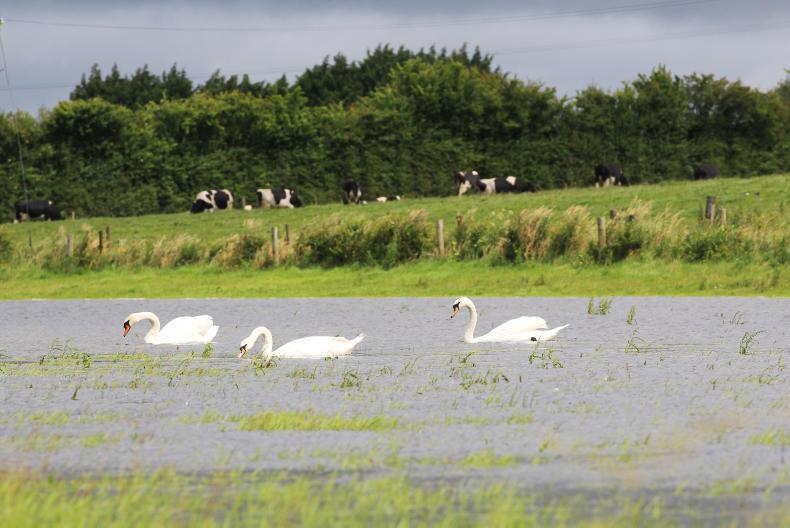The Department has confirmed that the H5N8 strain of avian influenza or bird flu was confirmed in the second week of 2017 in a whooper swan in Borrisokane, Co Tipperary.
This is the third case detected in wild birds in Ireland since the current outbreak of H5N8 began in Europe at the end of October 2016. No cases have yet been detected in poultry in the country. The Department has reiterated the Health Protection Surveillance Centre’s advice to the public that the risk to humans from this particular strain is considered to be very low as there have been no human deaths reported from the virus so far.
Meanwhile, the fourth case in farmed birds in Britain was identified this Monday at a 6,000-turkey farm in East Lindsey, Lincolnshire. Some birds died of the disease and the others were culled.
Housing
Since 23 December 2016, all poultry farmers in Ireland have been required under legislation to house their flock in order to minimise the risk of poultry coming into contact with wild birds. The legislation will be reviewed on 23 January.
However, the Department has said it will not be checking poultry farms for compliance with the housing legislation, adding that “responsibility for compliance lies with the owners of the birds”.
Speaking to the Irish Farmers Journal, Nigel Renaghan, IFA poultry committee chair, reiterated the concern he expressed last week that the Department is not communicating directly with bird owners.
“The Department says it has a database of registered backyard flocks but that means there are also flocks that are not registered,” he said.
“Department officials are going to have to find other ways of communicating with these bird owners because backyard flocks pose a massive threat to the commercial flocks,” Renaghan continued. “The Department should also be driving home the importance of housing and general biosecurity on poultry farms on a constant basis via social media and other media until the threat is lifted.”
Compensation
The Department of Agriculture has met with stakeholders in the poultry industry to discuss compensation options for farmers in the event that birds would have to be culled. A source from the meeting told the Irish Farmers Journal that the Department is commissioning a company in the UK to create a set of compensation values for stock in the event of a forced bird cull. The source added that the industry is pushing for these values to be finalised before an outbreak hits commercial flocks.
Since the first case of the current H5N8 outbreak was identified in Hungary on 28 October, thousands of farm birds have been culled across mainland Europe and the UK.
Read more
Full coverage: bird flu
The Department has confirmed that the H5N8 strain of avian influenza or bird flu was confirmed in the second week of 2017 in a whooper swan in Borrisokane, Co Tipperary.
This is the third case detected in wild birds in Ireland since the current outbreak of H5N8 began in Europe at the end of October 2016. No cases have yet been detected in poultry in the country. The Department has reiterated the Health Protection Surveillance Centre’s advice to the public that the risk to humans from this particular strain is considered to be very low as there have been no human deaths reported from the virus so far.
Meanwhile, the fourth case in farmed birds in Britain was identified this Monday at a 6,000-turkey farm in East Lindsey, Lincolnshire. Some birds died of the disease and the others were culled.
Housing
Since 23 December 2016, all poultry farmers in Ireland have been required under legislation to house their flock in order to minimise the risk of poultry coming into contact with wild birds. The legislation will be reviewed on 23 January.
However, the Department has said it will not be checking poultry farms for compliance with the housing legislation, adding that “responsibility for compliance lies with the owners of the birds”.
Speaking to the Irish Farmers Journal, Nigel Renaghan, IFA poultry committee chair, reiterated the concern he expressed last week that the Department is not communicating directly with bird owners.
“The Department says it has a database of registered backyard flocks but that means there are also flocks that are not registered,” he said.
“Department officials are going to have to find other ways of communicating with these bird owners because backyard flocks pose a massive threat to the commercial flocks,” Renaghan continued. “The Department should also be driving home the importance of housing and general biosecurity on poultry farms on a constant basis via social media and other media until the threat is lifted.”
Compensation
The Department of Agriculture has met with stakeholders in the poultry industry to discuss compensation options for farmers in the event that birds would have to be culled. A source from the meeting told the Irish Farmers Journal that the Department is commissioning a company in the UK to create a set of compensation values for stock in the event of a forced bird cull. The source added that the industry is pushing for these values to be finalised before an outbreak hits commercial flocks.
Since the first case of the current H5N8 outbreak was identified in Hungary on 28 October, thousands of farm birds have been culled across mainland Europe and the UK.
Read more
Full coverage: bird flu







 This is a subscriber-only article
This is a subscriber-only article










SHARING OPTIONS: